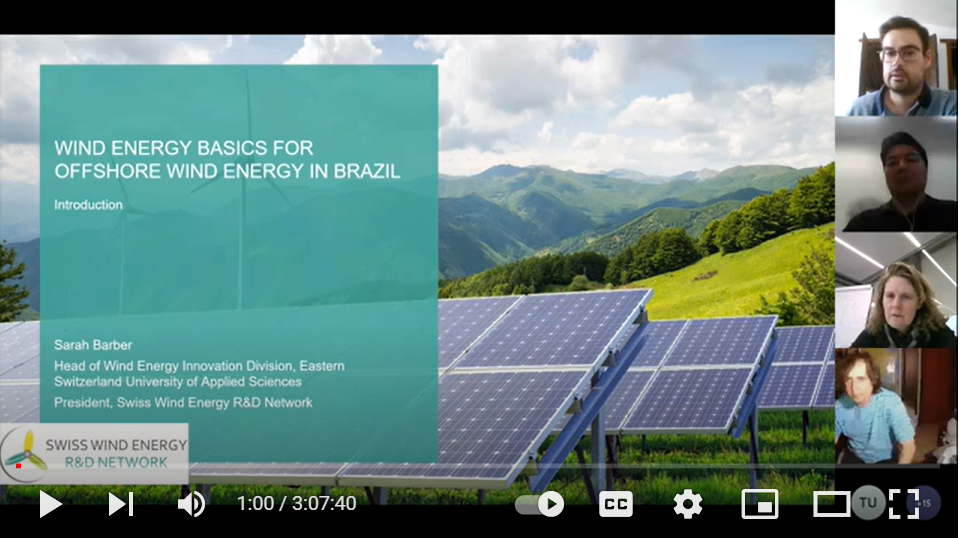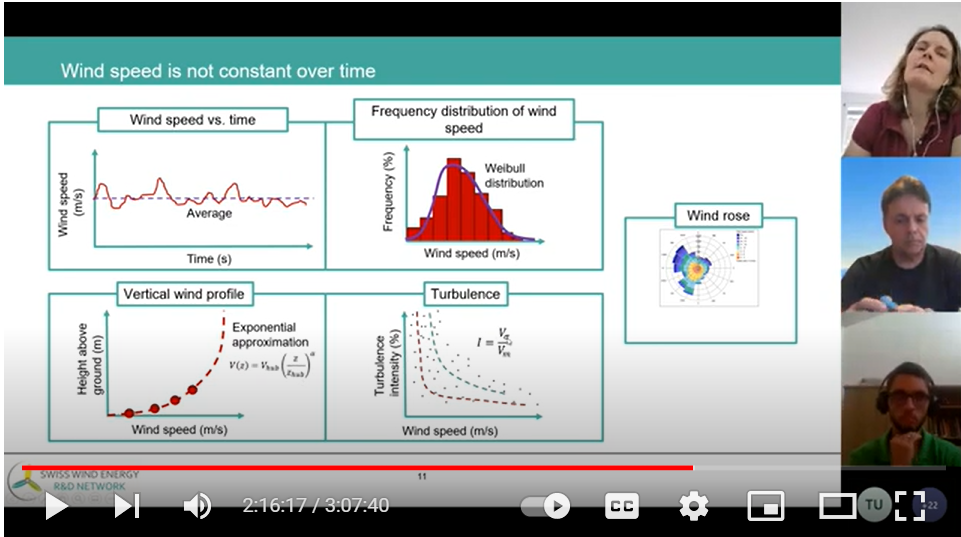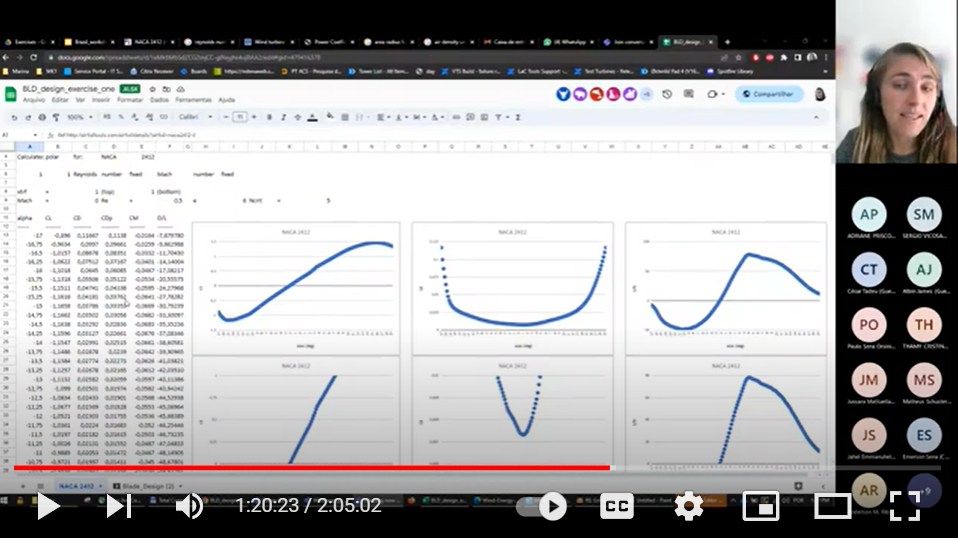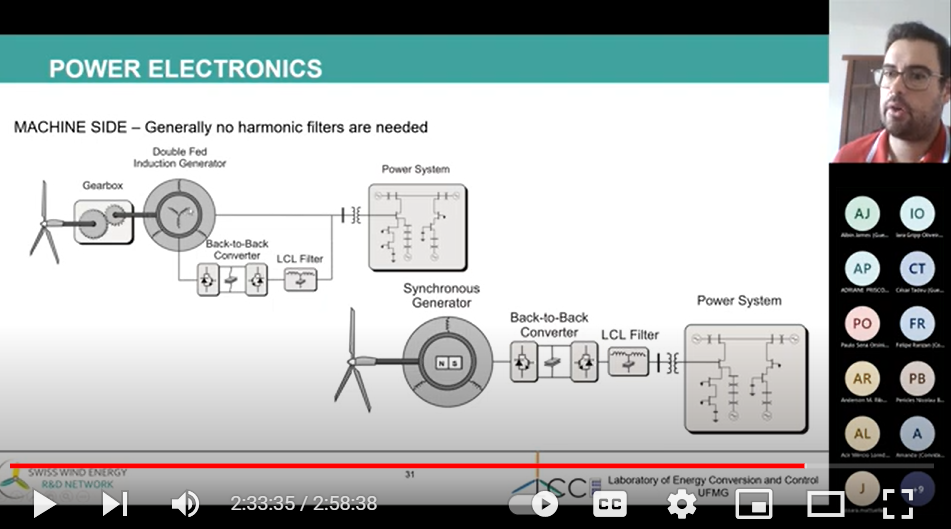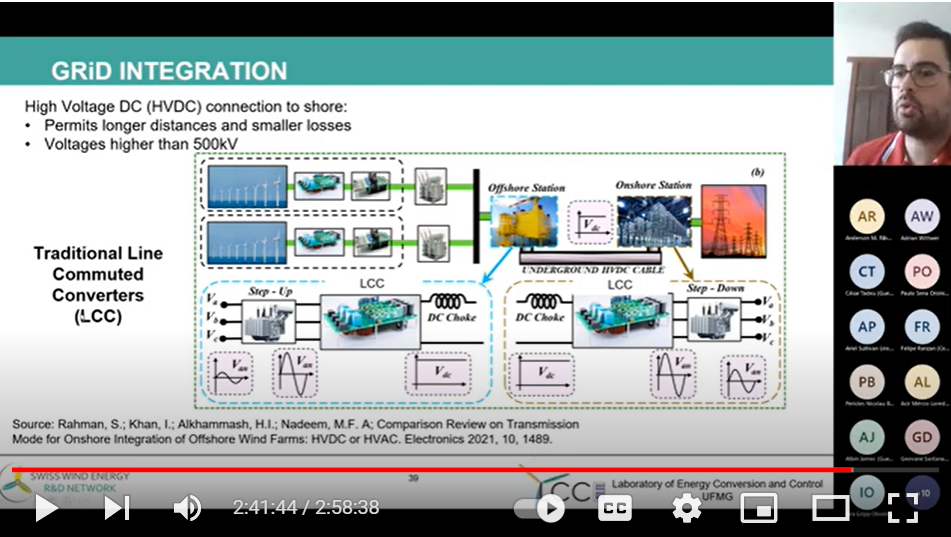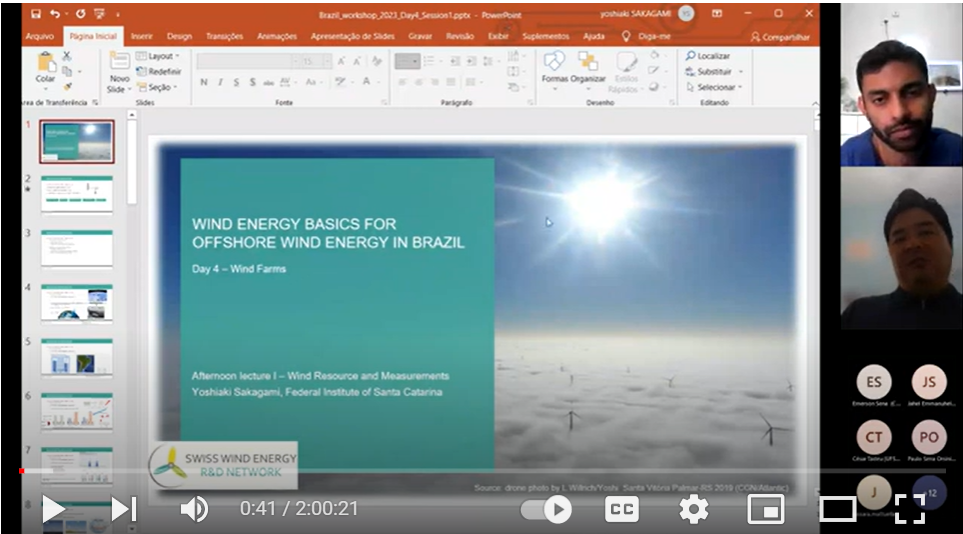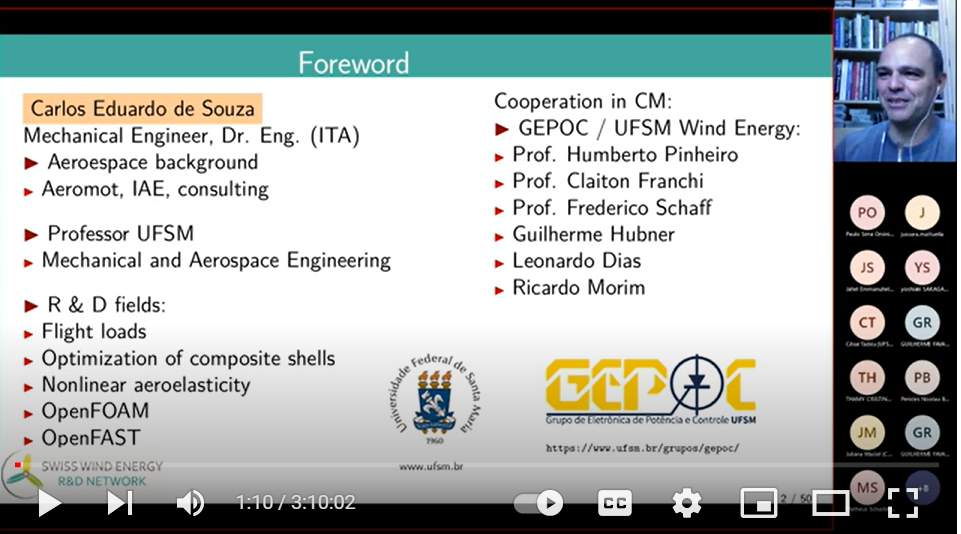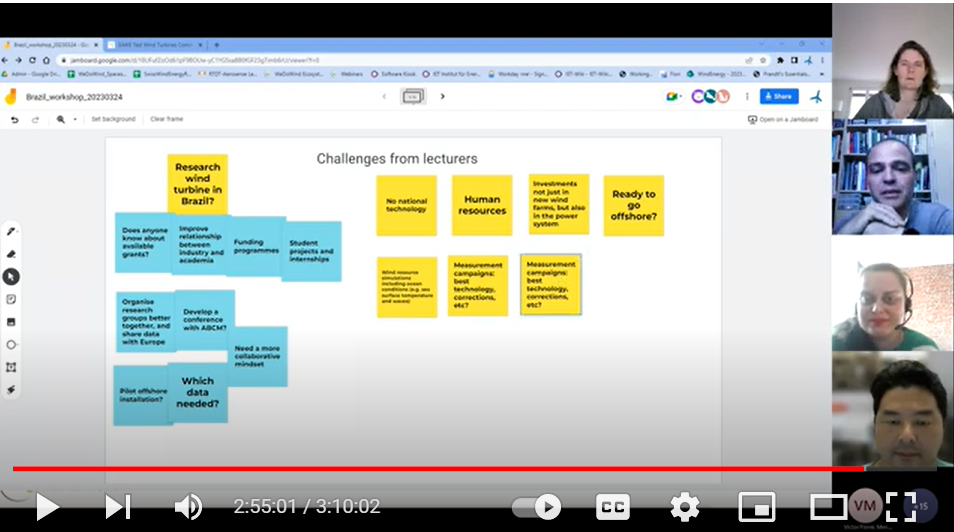According to the 10-year expansion plan 2029, Brazil has ambitious plans to expand offshore wind energy. In the Brazilian Offshore Wind Energy Roadmap 2020, EPE estimates that a potential of 700 GW exists. However, there are a number of challenges related to implementing this amount of wind energy. One of the largest challenges relates to the technical training of staff. With this workshop, therefore, we offered a course that provides people in Brazil with the basic knowledge and skills required to be successful in the wind energy industry.
Day 1
On day 1, Ingrid Silveria, an Offshore Wind Independent Consultant (Hamburg), presented an overview of the Brazilian wind energy market and moderated a workshop about the challenges of wind energy in Brazil. Sarah Barber from the Eastern Switzerland University of Applied Sciences (Switzerland) then presented an overview of the basics of wind energy technology, followed by an exercise to calculate the Annual Energy Production of a wind turbine operating in Brazil.
Day 2
On day 2, Marina Cavalli, Load and Control Engineer at Vestas (Portugal), talked about loads and blade design, and then ran an exercise on blade design. After that, Heloisa Mendonca, Industrial PhD at Vestas / DTU (Denmark), and Wilson Netto, Project manager at Vestas (Denmark), talked about composite materials.
Day 3
On day 3, Victor Mendes, Professor at Federal University of Minas Gerais UFMG (Brazil), first talked about energy conversion systems, and then about grid integration.
Day 4
On day 4, Yoshiaki Sakagami, Professor at Federal Institute of Santa Catarina-IFSC (Brazil), talked about wind resource and measurements, and then organised a wind resource assessment exercise using a Python tool. Rafael Rodrigues, Researcher at the Technical University of Denmark, Department of Wind Energy and Energy Systems, then talked about layout and wake modelling and moderated a workshop using PyWake.
Day 5
On day 5, Carlos De Sousa, Assistant Professor at Federal University of Santa Maria (UFSM), Brazil. talked about condition monitoring, and then moderated a discussion about the challenges and business opportunities related to condition monitoring. Finally, Sarah Barber moderated a panel discussion followed by Q&A session with some of the lecturers and the participants.
Recordings
You can access the recordings of most of the sessions here:
What next?
The participants were invited to continue the discussion and contribute to finding solutions to implementing wind energy in Brazil by joining our WeDoWind “Wind energy in Brazil” space. WeDoWind is a framework for bringing asset owners together with researchers and model developers in a "win-win" situation, whereby asset owners get easy access to state-of-the-art data analytics and model developers get access to relevant asset data to train and validate their models. It is based on industry-provided challenges, which are coordinated through digital spaces. Multiple digital spaces form branch-specific ecosystems of collaborators. It can be applied in any sector.
If you are interested in running a similar collaborative workshop on any topic related to wind energy in any country, we can help!



